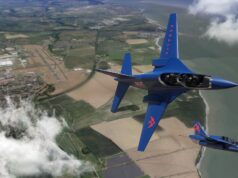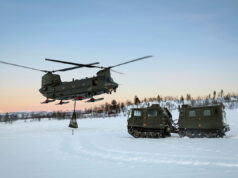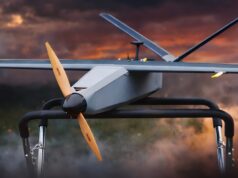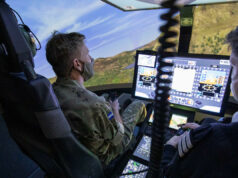The Ministry of Defence has confirmed that high numbers of autonomous collaborative platforms (ACPs) will be integrated into the UK’s armed forces over the next five years, as part of a wider shift towards autonomy recommended by the Strategic Defence Review, according to a parliamentary answer.
The statement came in response to a written question from Conservative MP Ben Obese-Jecty, who asked about the potential merits of procuring lower-value and highly attritable autonomous systems to saturate defensive networks.
Luke Pollard, Minister of State at the Ministry of Defence, said in his written reply on 15 September: “The Strategic Defence Review recommends that an immediate priority for force transformation should be a shift towards greater use of autonomy, including Autonomous Collaborative Platforms (ACPs), within the UK’s conventional forces over the next five years. High numbers of ACPs will be incorporated into the Integrated Force across the full breadth of operating environments as part of a ’20-40-40′ mix of capabilities alongside fifth and sixth generation platforms.”
He added: “This means combining advanced, crewed systems with cheaper, autonomous, and expendable assets to deliver greater mass, agility, and resilience.”
The minister also stated that the government will prioritise investment in UK-based defence firms to support the development of ACPs.
Pollard said: “We will prioritise investment in UK-based defence firms as part of this autonomy drive, aiming to stimulate economic growth, create jobs, and enhance national security by fostering innovation and resilience within the sector. Investment opportunities with British Defence companies will be determined as part of the Defence Investment Plan.”














Remember when ACP was a jet powered BAE drone.
Then it was a jet powered Qinetiq dr9ne called Jackdaw
Now it’s a propeller powered Portuguese one. UK defence contractors seem to have left the building when it comes to such aircraft.
All very good but exactly which British chip manufacturers are there that can make the chips? We let them all either go bust or get taken over by larger firms and so specialise rather than being able to make cutting edge chips needed for cheap drones.
20.40.40.
Ready made excuse not to buy conventional kit?
Hmmm, I’m getting a tad worried that you may be right, mate.
These things are going to need to be controlled or at least directed from crewed platforms. If cannot all be down from remote command centers using satellites. Jamming or worse Anti-Satellite weapons, which Russia demonstrated a few years ago, could render the whole force beyond use…
It seems they are treating drones as a silver bullet, there is no such thing!
It is good news that they going to bring them forward at pace 🙂
Cheers CR
As with all things, a balance is needed.
20.40.40 isn’t about enhancement, it’s about reducing the need to purchase crewed platforms, finding the cheapest way to achieve the minimum, rather than maximise effectiveness of forces.
Once it’s shown both are needed I’m sure expendable platforms will be seen as an extra or luxury, interest will drop and they will not be acquired in useful numbers. Ukraine has been highly innovative with drones, but still cannot retake its land.
Agreed.
You’re as cynical about HMG and MoD as me John!
With good reason.
Agreed
I don’t read it that way. More likely we’ll not see a huge surge in personnel and platform numbers as a result of the increased spending but modest amounts of both at best else just the current plans. But these will be heavily augmented by AI and autonomous capabilities, bringing more bang for the buck.